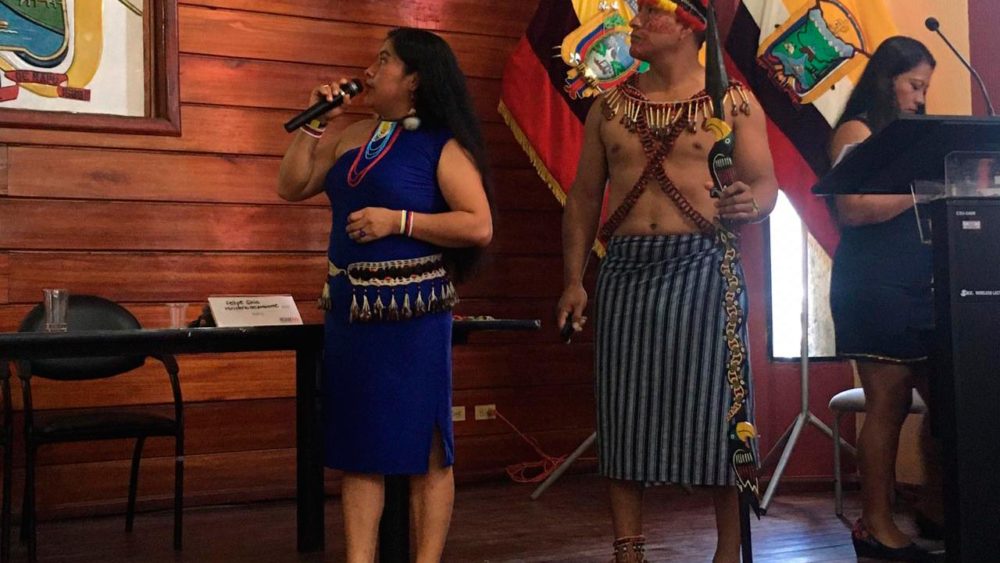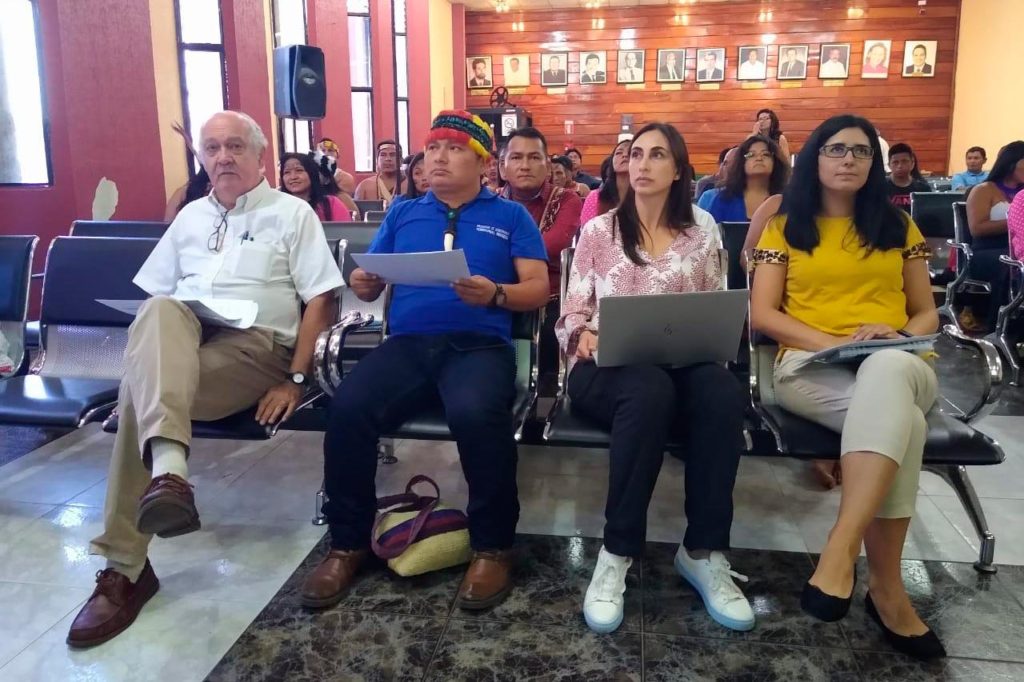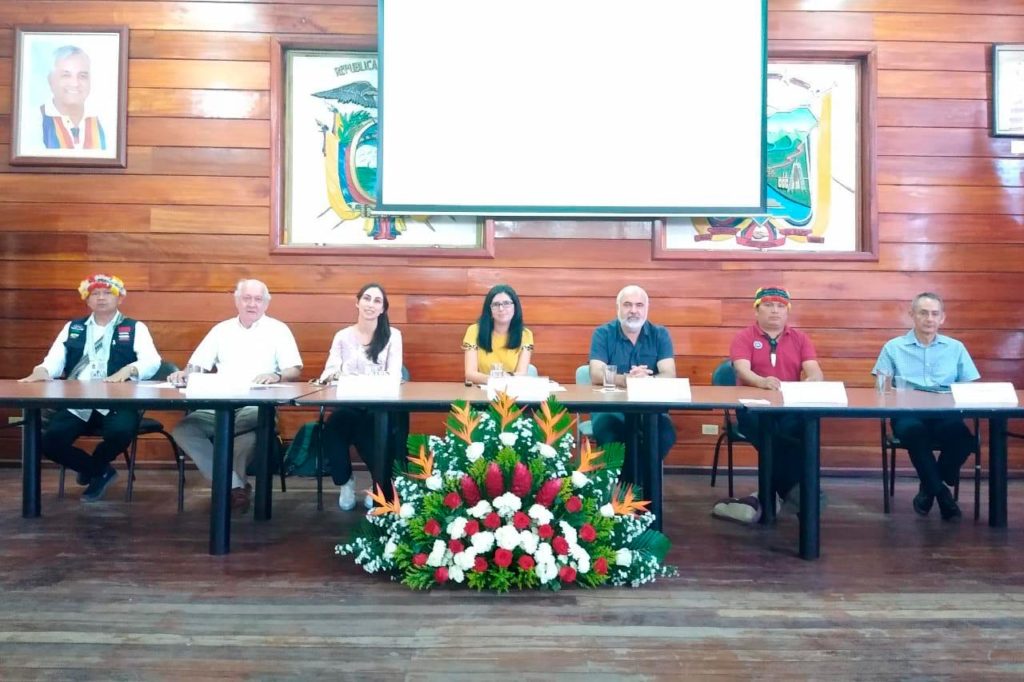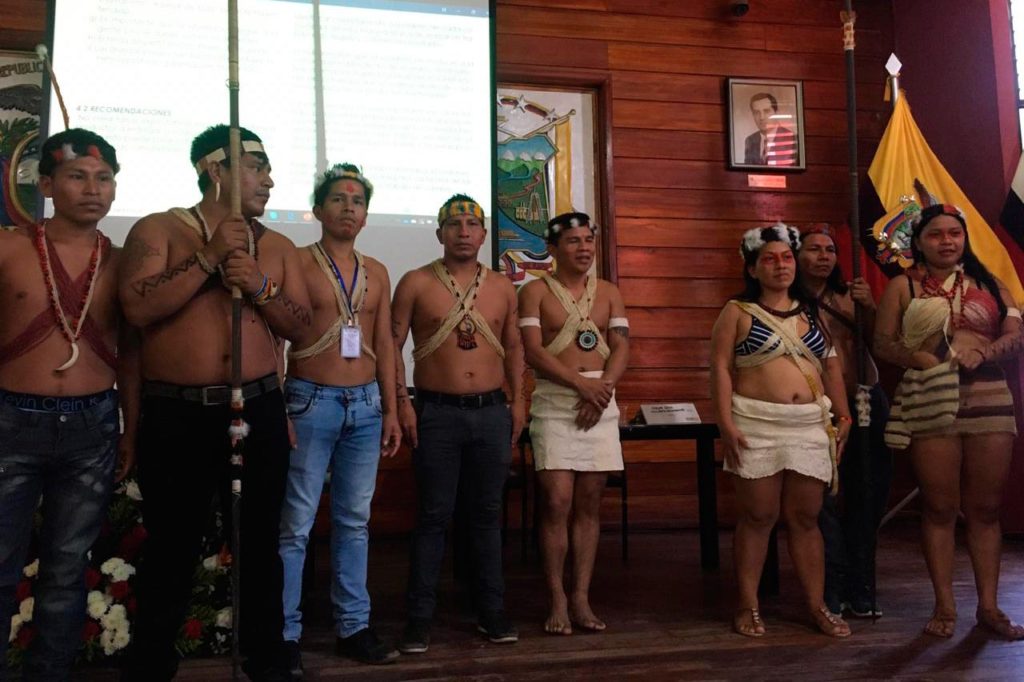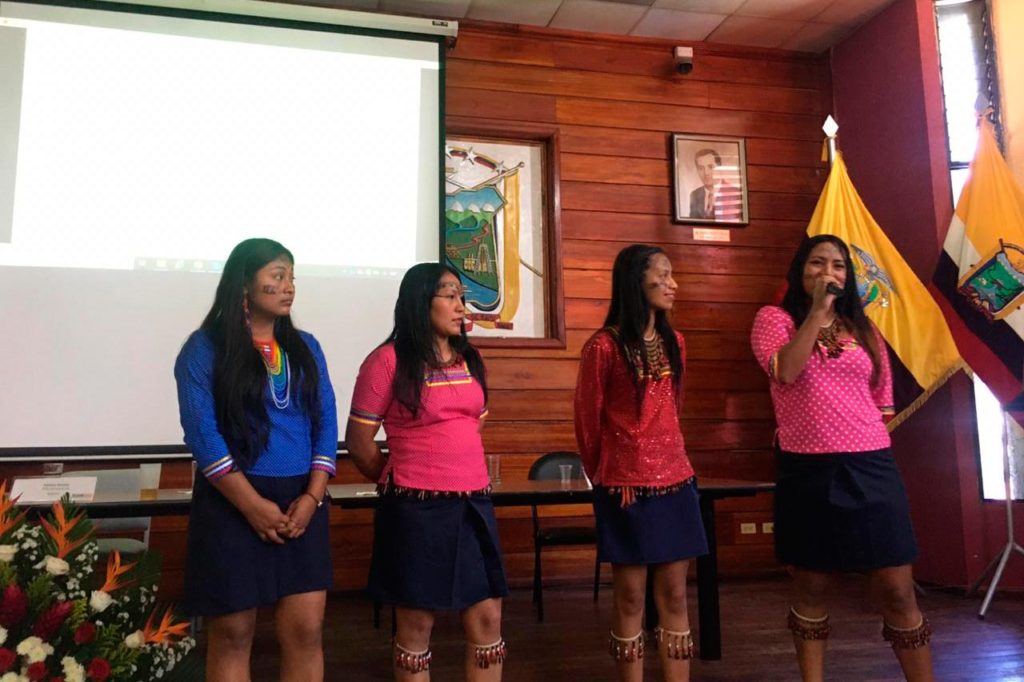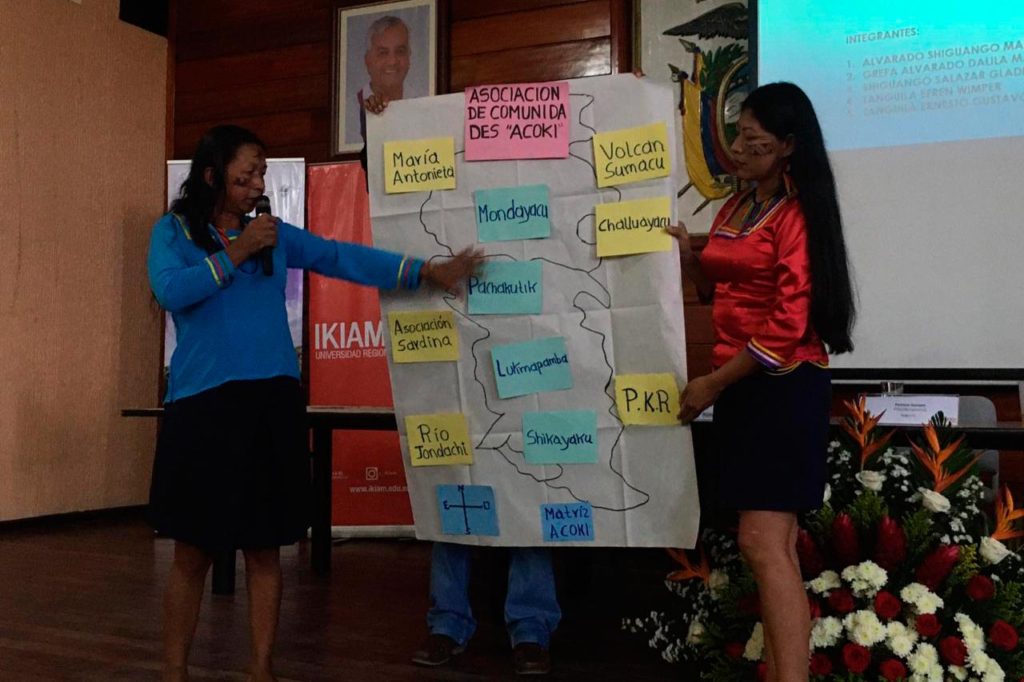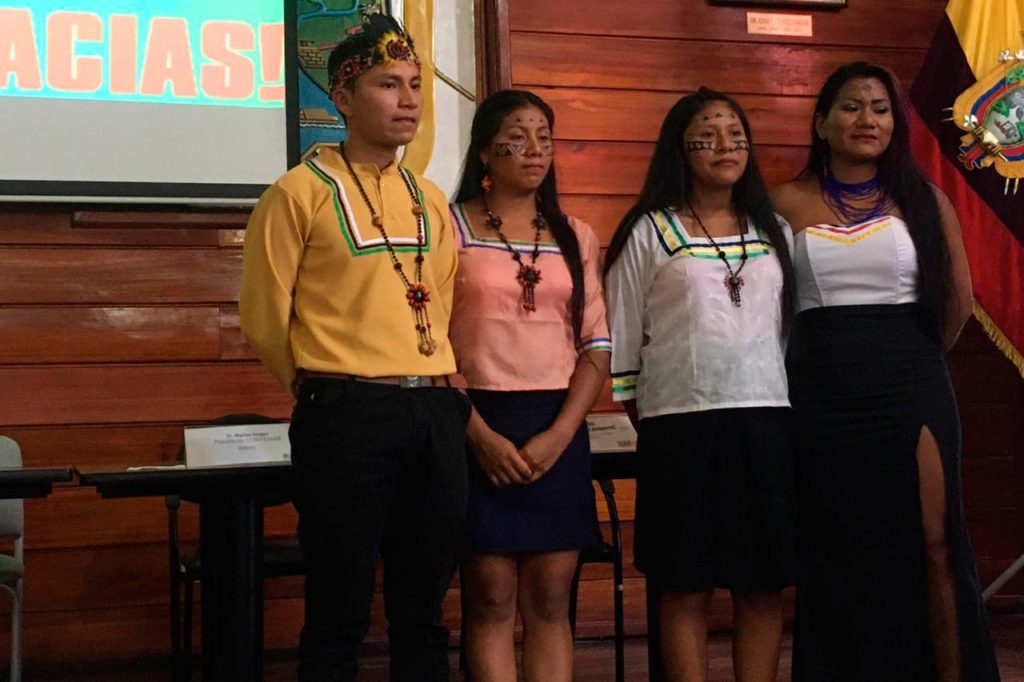The Indigenous Territorial Governance Training Program was launched in August 2019, for men and women of the peoples, communities and nationalities of the Ecuadorian Amazon. The objective of the PFGTI program was to train and strengthen students in ethical and caring leadership.
The implementation of this program arose from a strategic alliance between the Ministry of Environment, the Ministry of Agriculture and Livestock and the United Nations Development Program (UNDP) through PROAmazonía, the Confederation of Indigenous Nationalities of the Ecuadorian Amazon (CONFENIAE), the IKIAM Amazon Regional University and the International NGO Forest Trends.
The first step in implementing the program involved consultations and socialization with indigenous organization leaders to identify the beneficiaries of the program. This process resulted in the selection of 36 people of the Kichwa, Waorani and Shuar nationalities from the provinces of Sucumbíos, Napo, Pastaza and Morona Santiago.
The Indigenous Territorial Governance Training Program operated under a local pedagogical committee that coordinated and organized its implementation. Financing was shared by the collaborating institutions, where relations of reciprocity and collaboration prevailed.
The program was developed at the IKIAM University in the city of Tena. Students and teachers met every 5 weeks for 6 days for 6 face-to-face modules. Subsequently, students returned to their communities and carried out practical activities and tasks called training processes (learning activities) with the support of their own communities and a teacher who guided the work.
The program lasted 8 months and included 288 hours of training, (August 2019 to March 2020), prior to the onset of the national health emergency caused by the global COVID 19 pandemic.
Youth, scholars, men and women exchanged experiences and knowledge, and generated an environment of feedback and complementarity. The three nationalities exchanged experiences about their cultures, problems and the challenges they face each day in their territories. This cross-cultural exchange of knowledge strengthened the learning even further.
The curriculum of the program covered several topics associated with Territorial Governance. Some of the topics were Territory and Globalization, Legal Framework and Rights, Development and Good Living, Indigenous Territorial Governance, Gender and Generation, Life Plans and other planning instruments, Financial Administrative Management, Indigenous Economy/Markets; State, Public Policies and Governance, Climate Change and Reducing Emissions from Deforestation and Degradation (REDD+).
At the end of the program, each participant designed and prepared an impact project for their community. Some of these training processes sparked research projects, while others were oriented toward community management or organizational affairs. A large part of these training processes focused on developing or updating internal regulations to improve the management and governance of their territories.
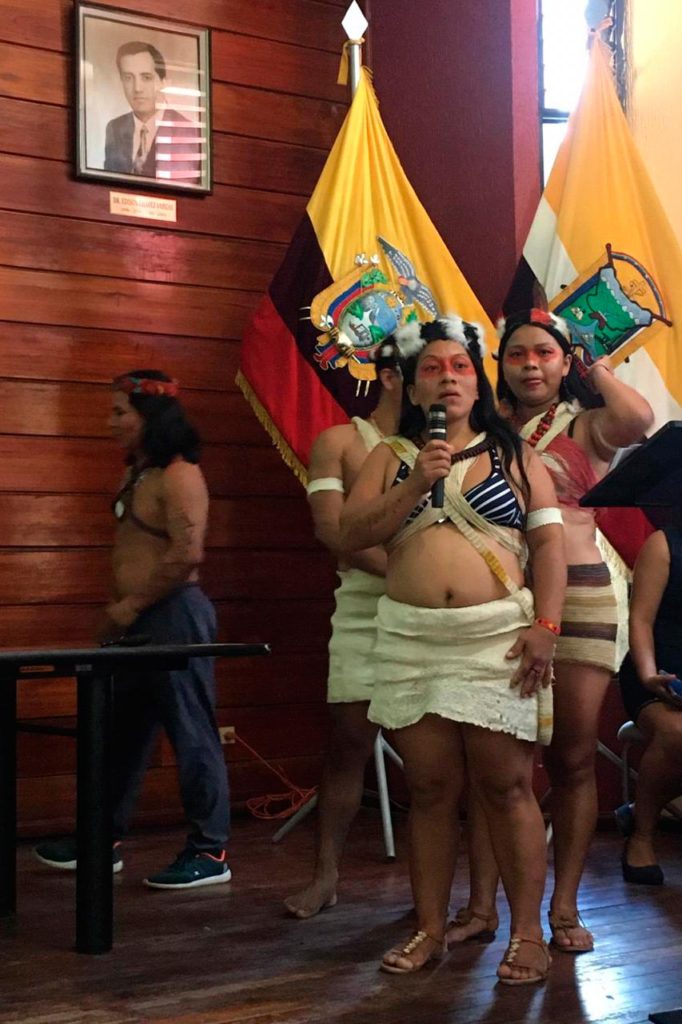
On March 13, 2020, at the end of the last face-to-face module, the organizations (36 students) presented their work to an evaluation panel that provided feedback and recommendations on these initiatives. These presentations gave the students the opportunity to apply their knowledge, skills, and abilities.
The atmosphere created during the presentations by each student became festive and a source of pride for their family members who accompanied them at their graduation. The students wore their traditional costumes, original clothing and typical ornamentation of their culture (imposing spears of the Waorani and Shuar cultures), as well as their handicrafts and the drum of a Kichwa leader, which made this closing a joyful occasion of pride and motivation.
Participating peoples and nationalities:
Kichwa nationality:
- Kichwa Rukullakta People (KR)
- Canelos Association
- Association of Kijus Communities (ACOKI)
- Santa Rita Community
- Federation of Organizations of the Kichwa Nationality of Sucumbíos (FONAKISE)
- San Jacinto Community
Waorani and Shuar nationality
- Waorani Nationality Organization of Napo (ONWAN)
- Interprovincial Federation of Shuar Centers (FICSH)
Check out our video at: https://youtu.be/TYJUvp20If8
 Español
Español English
English
